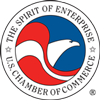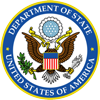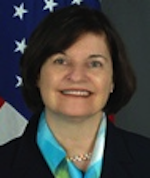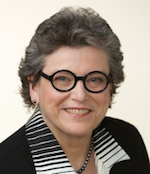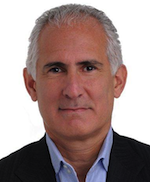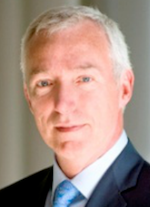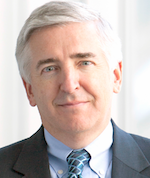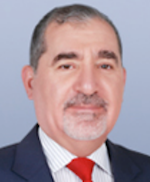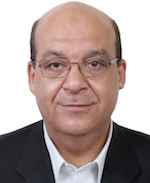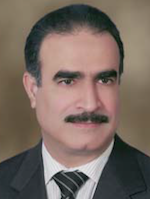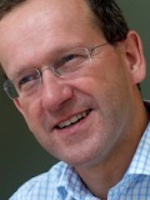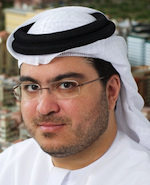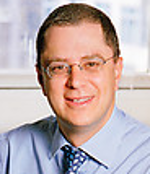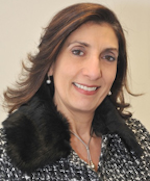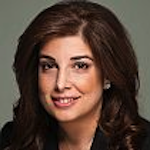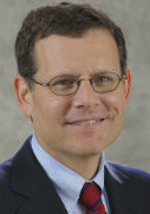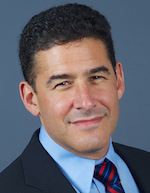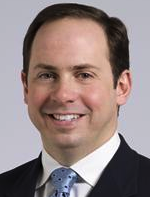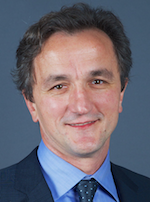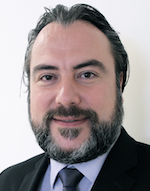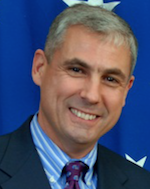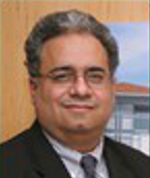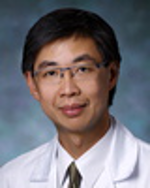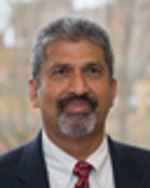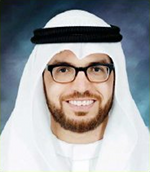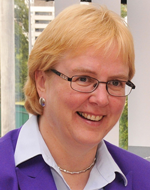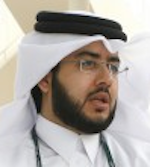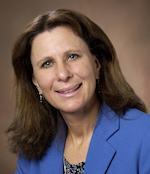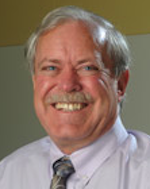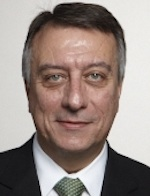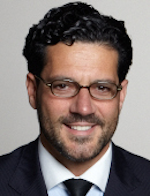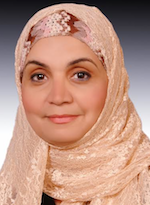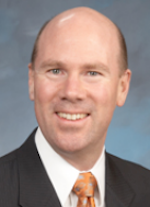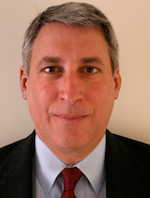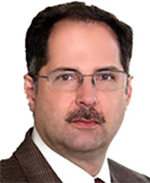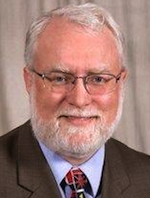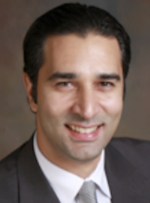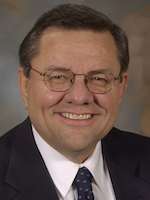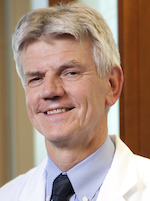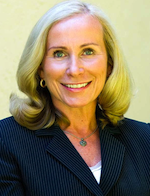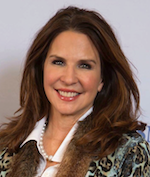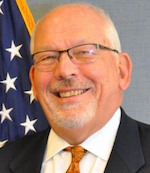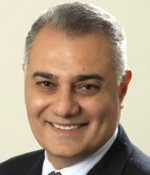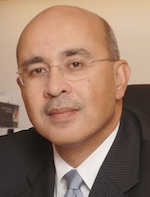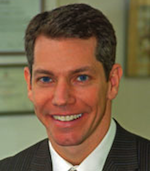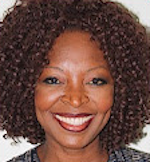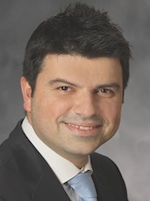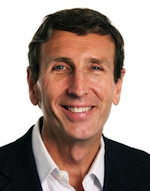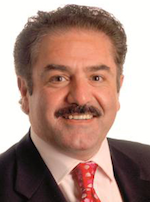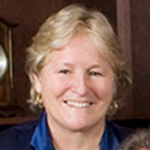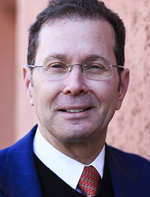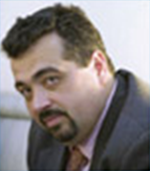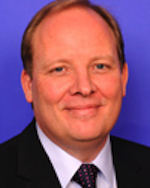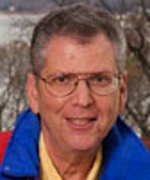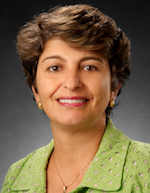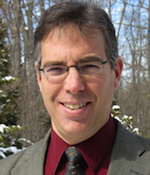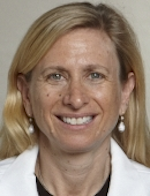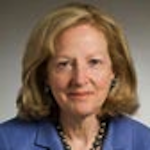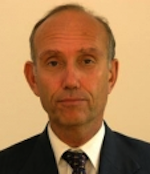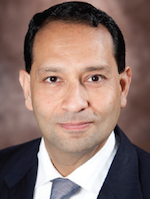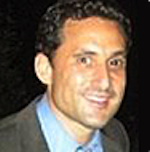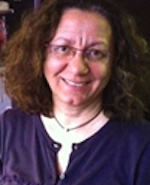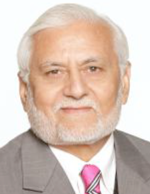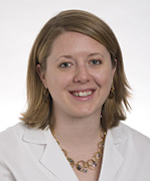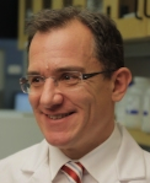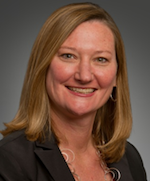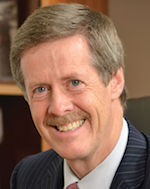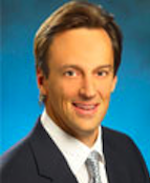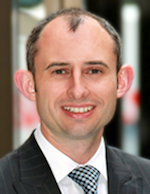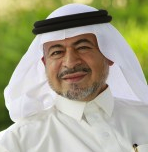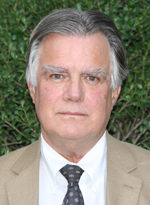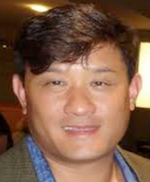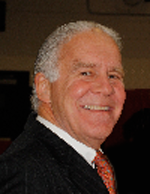7:00 am - 8:00 am
Room: Main Lounge,
First Floor
Continental Breakfast Sponsored by AECOM & GE
|
|
C3 2014 US-Arab Healthcare Summit Registration & Continental Breakfast
|
The Union League Club
38 East 37th Street
S.E. Corner of Park & 37th Street
Entrance on 37th Street
New York, NY
|
|
8:00 am - 9:00 am
Room: Lincoln Hall,
Second Floor
|
|
Opening Plenary of C3 US-Arab Healthcare Summit 2014
|
Diagnostic and Therapeutic Start-Ups: Opportunities for Investment, Economic Development and Healthcare Delivery
Comprised of investors, entrepreneurs and healthcare delivery experts, this panel will examine how interactions between the Arab World and the US can benefit investors, researchers, economic development and healthcare delivery in both regions. Discussion will explore opportunities and challenges to such interactions, with a specific focus on the roles played by the government and the private sector. The panel will evaluate the importance of entrepreneurship both in founding companies and in creating innovation within established organizations. Additionally, panelists will discuss the impact of start-up opportunities in diagnostics versus therapeutics created by the growth of healthcare infrastructure in the Middle East, as contrasted to the opportunities currently present in the US and the EU.
|
Dr. Prem Das,
(Moderator),
Chief Research Business Development Officer,
Dana-Farber Cancer Institute (DFCI)
|
Dr. Emad Rizk,
President,
McKesson Health Solutions
|
Dr. Mark C. Rogers,
Chairman of the Board,
Linus Oncology,
Chairman of the Board,
Vestion
|
Mr. Nick Microulis,
Managing Director,
Strategic Health Ventures LLC
|
Dr. Keith McNeil,
CEO,
Cambridge University Hospitals,
England
|
Dr. Cathy Easter,
President and CEO,
Houston Methodist Global Healthcare Services
|
|
9:00 am - 10:00 am
Room: Lincoln Hall,
Second Floor
|
|
Keynote Panel
|
|
Globalization of Healthcare Services: Perspectives from the Middle East and Europe and Its Impact on the US
|
|
Given the economic and political importance of healthcare systems in most countries, globalization will impact their stability and potential for expansion through its influences on improving patient care. However, with diminishing hospital utilization, and the rise of chronic diseases such as heart, cancer and diabetes in the United States and the Middle East, the global healthcare sector will have to radically rethink the design of its infrastructure, the international relationships and the way healthcare services are provided. That said, everyone involved with the healthcare industry will have to learn how to operate in a world characterized by the increasing integration of healthcare systems across international borders. The objectives of this panel are: (1) to suggest how healthcare globalization and the modern information and communication technologies (ICTs) that make this process possible could radically change both the external and internal components of global healthcare services and delivery; (2) discuss the role healthcare organizations might play in a globalized world with respect to improved patient care; (3) understand the role of diplomatic healthcare policies; and (4) to stimulate discussion and debate around these themes to explore the impact of healthcare diplomacy and that of healthcare institutions/providers in shaping their own future and the future of the healthcare system both in the US and abroad.
|
Ms. Paula Wilson,
(Moderator),
President and CEO,
Joint Commission
Resources (JCR) &
Joint Commission
International (JCI)
|
Amb. Leslie V. Rowe,
Acting Special Representative,
Office of Global Health Diplomacy,
U.S. Department of State
|
Dr. Rana A. Hajjeh,
National Center for Immunizations and Respiratory Diseases,
U.S. Centers for Disease Control and Prevention (CDC)
|
Ms. Debora Guthrie,
CEO & Managing Partner,
Capitol Health Global
|
Dame Julie Moore,
Chief Executive Officer,
University Hospitals
Birmingham,
England
|
Mr. John Hicks,
Director,
Head of Global Healthcare,
AECOM,
London
|
|
10:00 am - 10:10 am
|
Session Break
|
10:10 am - 11:10 am
Room: Lincoln Hall,
Second Floor
|
|
The Pending Epidemic of Diabetes in the Middle East
|
|
Rapidly increasing diabetes rates in the Middle East and North Africa (MENA) are giving rise to concerns about an epidemic and the financial burden of healthcare costs to the region’s governments. Several countries in the region are among the highest prevalence of diabetes worldwide. They include Egypt, United Arab Emirates, Bahrain, Kuwait, Qatar and Saudi Arabia. The International Diabetes Foundation estimates that 34.6 million adults in the MENA region currently have diabetes, accounting for 10.9 percent of the world’s adults with the disease. But, even worse, the foundation predicts that over the next 20 years the number of people with diabetes in the region will almost double — reaching a staggering 68 million by 2035. Main reason being that, according to the latest figures, more than half of the people in the region, with this disease, are undiagnosed and unaware. For those who are aware they are at risk, many do not even consider the disease to be serious. In financial terms, globally the burden of diabetes is enormous, reaching 5.1 million deaths and taking up some USD 548 billion dollars in health spending (11% of the total spent worldwide) in 2013. This session will focus on diabetes from a four dimensional view: the view of a healthcare practitioner, a view of a patient, a view of a policy maker and a view of a pharmaceutical industry. All united to build not just a regional, but global, partnership and how best to control the pending diabetes epidemic in the Middle East.
|
Mr. Kevin Ali,
(Moderator),
President, Emerging Markets,
Merck Sharp & Dohme GMBH
|
Mr. John Brooks,
President and CEO,
Joslin
Diabetes Center
|
Dr. Ibrahim Naguib El Ebrashy,
Director - Diabetes & Endocrinology,
Kasr El-Aini Hospitals School of Medicine, Cairo University
|
Dr. Ahmed Hassoun,
Director of Education & Research,
Dubai Diabetes Center,
UAE
|
Dr. Abdulrazzak Al Madani,
Chief Executive Officer,
Dubai Health Authority (Dubai Health Hospital),
Government of Dubai
|
|
11:10 am - 11:20 am
|
Session Break
|
|
11:20 am - 12:20 pm
Track #1
Room: Lincoln Hall,
Second Floor
|
|
The Academic and Educational Seeding Model to a Successful International Partnership
|
|
The panelists will present and discuss the critical components for seeding a model of academic and clinical collaboration based on the partnership involving the Memorial Sloan-Kettering Cancer Center (MSKCC) and the American University of Beirut (AUB). Dr. Ghassan Abou-Alfa from Memorial Sloan-Kettering Cancer Center and Dr. Samia Khoury from American University of Beirut (AUB) will present their perspectives on this successful academic and clinical partnership. Dr. Clifford Hudis, Chief of the Breast Cancer Medicine Service at MSKCC and president of the American Society of Clinical Oncology (ASCO), will illustrate how the MSKCC-AUB model has helped ASCO assist its members worldwide to incorporate evolving technology in the delivery of compassionate and evidence-based care. Ms. Randa Haffar, a director of Citi Private Bank and the Bobst Foundation, will speak to the issue of financial support which has helped to create the success of this collaborative business model in the healthcare field.
|
Dr. Ghassan Abou-Alfa,
(Moderator),
Associate Professor,
Memorial Sloan-Kettering Cancer Center
|
Ms. Karen Bechtel,
Managing Director,
Co-Head of Global Healthcare Team,
The Carlyle Group
|
Ms. Randa El-Sayed
Haffar,
American University of
Beirut Trustee;
Director
Citi Private Bank;
Director, Elmer and
Mamdouha Bobst
Foundation
|
Dr. Clifford Hudis,
President,
American Society of Clinical
Oncology;
Chief, Breast Cancer
Medicine Service,
Memorial Sloan-Kettering
Cancer Center
|
Dr. Rana A. Hajjeh,
National Center for Immunization and Respiratory Diseases,
U.S. Centers for Disease Control and Prevention (CDC)
|
Dr. Samia J. Khoury,
Director, Associate Dean for Clinical and Translational Research,
Abu Haidar Neuroscience Institute, American University of Beirut
|
|
|
11:20 am - 12:20 pm
Track #2
Room: Main Lounge,
First Floor
|
|
Developing Hospital and Healthcare Infrastructure Projects in the Middle East
|
|
The global healthcare market is both massive and expanding. Historically, global outreach initiatives by Academic Medical Centers (AMCs) have focused on specific diseases and public health issues in less developed countries. More recently, rapid privatization of healthcare systems, economic development, and an aging population that shifts the disease burden towards chronic illnesses which require more advanced resources have led hospitals in emerging markets like the Middle East to seek partnerships with U.S. health systems, with the hopes of improving delivery of healthcare to its citizens at home and abroad. High quality healthcare is always a critical success factor for hospitals. This includes a well-designed facility that complies with new standards, multidisciplinary care teams, latest medical technologies, as well as the supporting systems and operating processes involved. The goal of this session is to discuss latest trends in the globalization of healthcare with an eye towards the development of healthcare infrastructure and the hospital build process, and ways to create high quality patient healthcare with lower costs based on either consulting agreements, strategic alliances, management outsourcing, or some/all of the aforementioned resources.
|
Dr. Heitham Hassoun,
(Moderator),
Medical Director, Global Services,
Johns Hopkins Medicine International
|
Dr. Nellie Boma,
Chief Medical Officer,
Al Rahba Hospital,
Abu Dhabi
|
Dr. Mounes
Kalaawi,
CEO
& Co-Founder,
Clemenceau
Medical Center,
Beirut, Lebanon
|
Mr. Ronald Lavater,
CEO,
Al Corniche
Hospital,
Abu Dhabi
|
Barak Malatyali,
Chief Operating Officer,
Johns Hopkins International Medicine
|
Dr. Basil Matta,
Divisional Director,
Emergency and Perioperative Care,
Cambridge University Hospitals,
England
|
|
12:20 pm - 1:20 pm
Room: Main Dining,
Third Floor
Buffet Lunch Sponsored by XS Conferences & Exhibitions
|
|
Luncheon & Keynote Address
|
|
Dr. Ghassan Abou-Alfa
Associate Professor,
Memorial Sloan-Kettering Cancer Center
The Experience of Memorial Sloan-Kettering Cancer Center and the American University of Beirut
|
|
Dr. Ghassan Abou-Alfa will present the fascinating and moving account of how an international site visit led to the development of a highly successful collaboration between two prominent US and Middle Eastern institutions. He will cover the origins of this pioneering partnership and how the continuing collaboration has successfully resulted in joint training courses, the first tissue bank in the Middle East, remote patient consultations, and numerous joint publications.
|
|
1:20 pm - 1:30 pm
Room: Main Dining,
Third Floor
|
|
Luncheon Closing Comments
|
|
Dr. Muhammad Chaudry
President
IFANCA
The Islamic Food and Nutrition Council of America
The Global Industry for Halal Food and Lifestyle Products
|
|
Based on a Globals and Foresights study, more that 70% of the 2 billion increase in the world's population, between now and 2050, will be born in Muslim countries. As the Muslim population continues to grow, producers and exporters of halal products, from China to the US, are anxious to learn how best to target this consumer market. IFANCA, a not-for-profit halal certification organization, projects the domestic US hala market alone to be at $20 billion. Dr. Muhammad Chaudry will address the global demand for halal products according to manufacturing standards of Islamic law.
|
|
|
1:30 pm - 2:30 pm
Track #1
Room: Lincoln Hall,
Second Floor
|
|
The Role of Public/Private Partnerships in Driving Greater Service and Understanding
|
|
In the United Arab Emirates, a transformation is underway, as a world-class healthcare infrastructure is being built to prevent the outmigration of patients, which has historically seen Emiratis traveling abroad to seek highly-specialized acute care. Mubadala Healthcare’s Cleveland Clinic Abu Dhabi will be the first US multispecialty hospital to be replicated outside of North America, and serves as a prime example of how an international partnership, such as the one between Cleveland Clinic and Mubadala Healthcare, can see a renowned medical institution leverage the expertise of a local partner to serve an international market. In addition to addressing key gaps and needs within the evolving local healthcare sector to provide world-class care in Abu Dhabi, Cleveland Clinic Abu Dhabi also serves as a vehicle for knowledge and skills transfer to an emerging Emirati healthcare community, facilitating development of the next generation of leaders in the sector.
|
Dr. Marc Harrison,
(Moderator),
Chief Executive Officer,
Cleveland Clinic Abu Dhabi
|
Mr. Semih Sen,
Associate Director,
Mubadala Healthcare,
Abu Dhabi
|
Dr. James Merlino,
Chief Experience Officer & Associate Chief of Staff,
Cleveland Clinic
|
Dr. Tomislav Mihaljevic,
Chief of Staff and Chief of the Heart & Vascular Institute,
Cleveland Clinic Abu Dhabi
|
Mr. Danny E. Sebright,
President,
U.S.-U.A.E. Business Council
|
|
1:30 pm - 2:30 pm
Track #2
Room: Main Lounge,
First Floor
|
|
The Importance of Investing in Science, Health and Education between the US and the Middle East
|
|
The Middle East is a region that’s very important to the US strategically and is currently undergoing many changes that make it critical for the US to invest more in health and science. Because there are many growing economies, there is significant interest in strengthening education and science in the region by improving collaborations. However, the region is also experiencing many political changes, which affect its health capacity and infrastructure. In addition, it’s a center of international travel and mass gatherings like Hajj, which makes it important from a health perspective to have a strong capacity to deal with various health crises. Notwithstanding infectious diseases and environmental health issues, non communicable diseases have quickly emerged as important causes of morbidity and mortality, especially in middle and higher income countries in the region. For these reasons alone, strengthening health, science and education in the region will be critical for its stability and development.
|
Dr. Rana A. Hajjeh,
(Moderator),
Division Director,
National Center for Immunizations and Respiratory Diseases,
U.S. Centers for Disease Control and Prevention (CDC)
|
Mr. Khush Choksy,
Vice President for Turkey, Middle East, and North Africa Affairs,
International Affairs,
U.S. Chamber of Commerce
|
Dr. Winston Patrick Kuo,
COO,
IES Diagnostics
|
Dr. Haitham Al-Salama,
Director of Science Policy and Management,
Qatar Foundation,
Sidra Medical Center,
Doha, Qatar
|
Dr. Lana O. Shekim,
Program Director,
National Institute on Deafness and Communication Disorders (NIDCD),
National Institutes of Health (NIH)
|
Dr. Ryan Wiley,
Vice President,
SHI Consulting,
Toronto, Canada
|
|
2:30 pm - 2:40 pm
|
Session Break
|
|
2:40 pm - 3:40 pm
Track #1
Room: Lincoln Hall,
Second Floor
|
|
Transforming Middle East Healthcare Through Technological Innovation
|
|
The rapid rise of non-communicable disease and increasing healthcare costs are placing a greater demand on Middle East healthcare systems than ever before. To address these challenges, governments and key healthcare providers are investing in healthcare transformation to increase access to affordable and quality care, modernize the healthcare system, and increase workforce capacity through training and education. This panel will focus on the role of technology as a game changer in enabling simpler, more precise, more affordable healthcare. Illustrative examples from the Middle East and beyond will bring current technology trends and enabling forces to life, including the role of reverse innovation, big data, primary care innovation, and public private partnerships.
|
Mr. Christian Barry,
(Moderator),
General Mgr - Market Development, Eastern and Africa Growth Markets,
GE Healthcare
|
Mr. Marwan Abedin,
Chief Executive Officer,
Dubai Healthcare City,
Member of the Board of Directors,
Dubai Healthcare City Authority
|
Dr. Nicola Pangher,
Chairman,
Tesan
|
Mr. Kevin Bolger,
Board of Directors,
Executive Director for Strategic Operations,
University Hospitals Birmingham,
England
|
Mr. Marc Kerachsky,
Global Director,
New Market Models,
GE Healthcare
|
Dr. Michelle L. Niescierenko,
Global Health Program Director and Pediatric Emergency Medicine Attending,
Boston Children's Hospital,
Fellow at Harvard Humanitarian Initiative
|
|
|
2:40 pm - 3:40 pm
Track #2
Room: Main Lounge,
First Floor
|
|
The Need for Family Medicine as a Healthcare Necessity in the Middle East
|
|
Much of the development of health care in the Middle East has focused on the formation of highly qualified specialty services in specific areas of medicine, such as sub-specialists in various fields of surgery, cardiology, oncology, pediatrics, and gynecology. However, evidence from around the globe indicates that the great majority of common medical problems can be diagnosed and managed at the primary care level, and complex medical problems can be identified and co-managed with specialists at this level. This panel will discuss the value to both patients and specialists of using highly trained family physician generalists at the primary care level to serve as the first point of contact with most patients, and how this can add value to the health system as a whole. The panel will also discuss some of the new innovations in providing this service, such as the concept of a “medical home”, how family physicians can be effectively developed, and how this can fit into the broader health system.
|
Dr. Calvin Wilson,
(Moderator),
Clinical Professor, Family Medicine and Public Health,
University of Colorado School of Medicine - National University of Rwanda
|
Dr. Bonnie Jortberg,
Faculty member,
University of Colorado
School of Medicine -
Department of Family Medicine
|
Dr. Laeth Nasir,
Chairman,
Creighton University - Department of Family Medicine
|
Dr. Stephen Schultz,
Board of Directors,
AFMRD, Associate Professor of Family Medicine,
University of Rochester
|
Dr. Norbert Goldfield,
Executive Director,
Healing Across The Divides,
Medical Director,
3M Health Information Systems
|
|
3:40 pm - 4:00 pm
|
Session Break/Exhibit Preview/Networking
|
|
4:00 pm - 5:00 pm
Track #1
Room: Lincoln Hall,
Second Floor
|
|
The Promise of Big Data Computing for Clinical Support and Personalized Medicine
|
|
Health and Life Science technology are advancing at a blistering rate. Widespread adoption of electronic health records, new health monitoring devices and sensors, and the $1,000 genome are enabling new models for care. But how can we best use these new devices and data? Can we use them to make better clinical decisions, improve care management and outcomes, and reverse the continuing rise of healthcare costs? This panel will introduce you to the exciting fields of clinical and genomic analytics, the computing technologies that enable them, and examples of how they are being applied around the world.
|
Ms. Joan Hankin,
(Moderator),
World Wide Healthcare Marketing, Manager IT Program,
Intel Corporation
|
Dr. Randall Burt,
Senior Director of Prevention and Outreach and Clinical Services,
Huntsman Cancer Institute
|
Mr. Mathew H. Taylor,
Senior Healthcare IT Strategist & Architect,
Intel Corporation
|
Dr. Mark A. Rubin,
Vice Chairman for Experimental Pathology,
Director, Translational Research Laboratory Services,
Weill Cornell Medical College
|
Dr. Geoffrey Mann,
JMP Product Manager,
SAS
|
|
|
4:00 pm - 5:00 pm
Track #2
Room: Main Lounge,
First Floor
|
|
The Silent Secret: The Rise of Female Breast Cancer in the Middle East
|
|
The Middle East is experiencing an alarming acceleration in the incidence of breast cancer aggravated by adverse lifestyles often secondary to rapid westernization, with complex interactions between culture, religion and traditions. In some countries, nearly 70% of women are diagnosed at an advanced stage by the time they finally visit a doctor. As a result, breast cancer in some Arab countries accounts for 25% of all cancers. A large step in preventing breast cancer mortality rates in the Arab region is patient screening. This is particularly important given that in many Muslim countries religious practice demands concealment. Even a mammogram can be considered taboo. For this reason, many women in the Arab region may adversely come to believe that self-examinations and/or clinical breast examinations are unsanctioned healthcare practices. Something which enlightened and concerned voices can counteract and something that can help bring down the rising rate of breast cancer cases, especially in women under 40, which stands at 30% in some Arab countries compared to 5% in the US. This panel will address the importance of the development and institutionalization of breast cancer screening programs, massive educational programs on breast cancer using multi-media tools and strategies, training and intervention programs supported by physicians, Health Ministers and religious leaders.
|
Dr. David Sans,
(Moderator),
Head of Strategic Planning and Business Development,
Mount Sinai Hospital
|
Engineer Sobhi Batterjee,
President and CEO,
Saudi German Hospitals Group,
Riyadh, Saudi Arabia
|
Dr. Samar Alsaggaf,
Director, Department of Medical and Health Science Programs,
Saudi Arabian Cultural Mission
|
Dr. Carlos Cordon-Cardo,
Chairman, Department of Pathology,
Mount Sinai Hospital - Ichan School of Medicine
|
Dr. Elisa R. Port,
Associate Professor, Surgery,
Mt. Sinai Hospital
|
|
|
5:00 pm - 5:30 pm
Room: Lincoln Hall,
Second Floor
|
|
Closing Plenary of C3 US-Arab Healthcare Summit 2014
|
|
|
|
Dr. Ajay Singh,
Executive Director,
Dubai Harvard Foundation for Medical Research
Taking New Approaches to Building Capacity in Clinical Research in the Arab World
Since its 2006 launch, the Dubai Harvard Foundation for Medical Research (DHFMR) has funded collaborative research initiatives in the Middle East that focus on health issues relevant the region's population. DHFMR's support of multi-sited programs has connected research centers throughout the region, moving viable partnerships forward to address common health issues from different regional perspectives. In addition, DHFMR encourages programs that provide research and training opportunities for early to mid-career researchers and physician-scientists, and through its post-doctoral fellowship awards DHFMR recognizes young Arab investigators who in turn will develop their own networks in their home country and throughout the region.
Similarly, by supporting young Arab physicians who are enrolled in Harvard Medical School's Global Clinical Scholars Research Training (GCSRT) program, DHFMR provides specialized training in epidemiological and clinical research – GCSRT's blended approach of on-line instruction and in-person workshops allows participants access to the program while pursuing a career at home. In addition, DHFMR organizes regionally focused workshops and conferences that convene physicians, researchers, clinicians, healthcare professionals and policy makers to consider new approaches to medicine and healthcare delivery.
|
|
|
5:30 pm - 7:00 pm
Room: Main Lounge,
First Floor
Music by Matthew Maimone, Pianist
|
|
Cocktail & Networking Reception Sponsored By New York-Presbyterian
|
|
Dr. Robert E. Kelly,
President,
New-York Presbyterian
Opening Remarks
|
|
